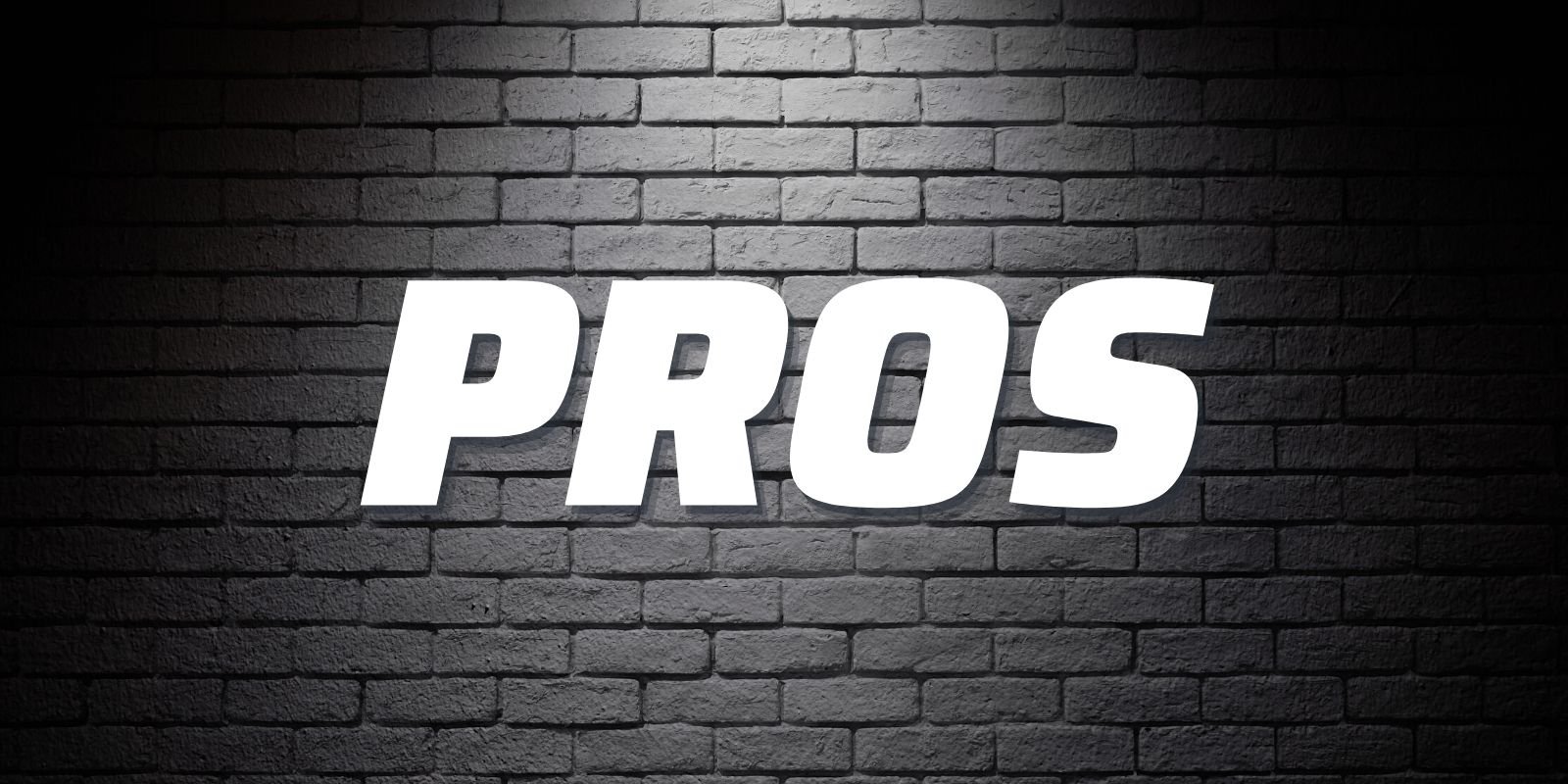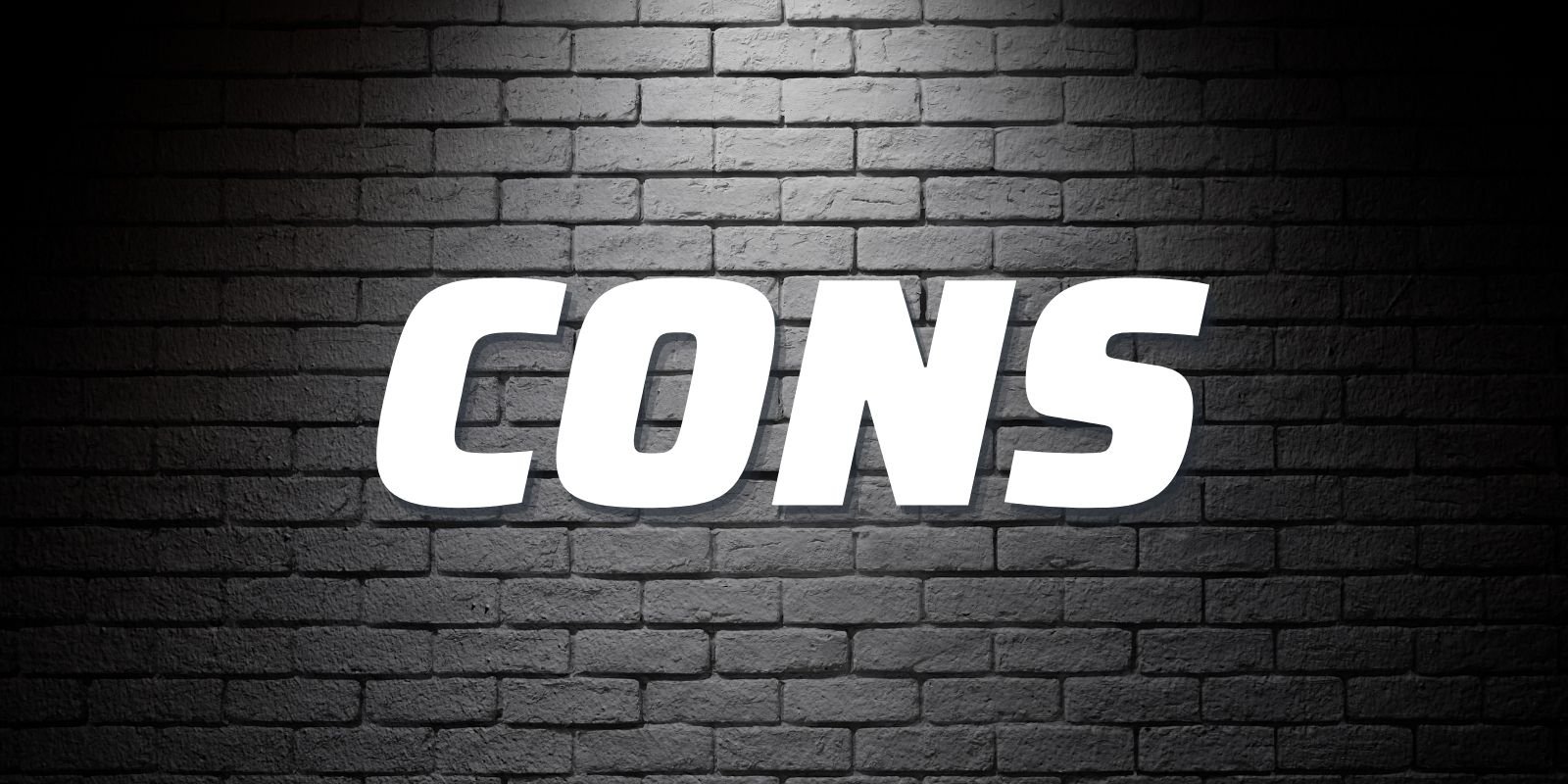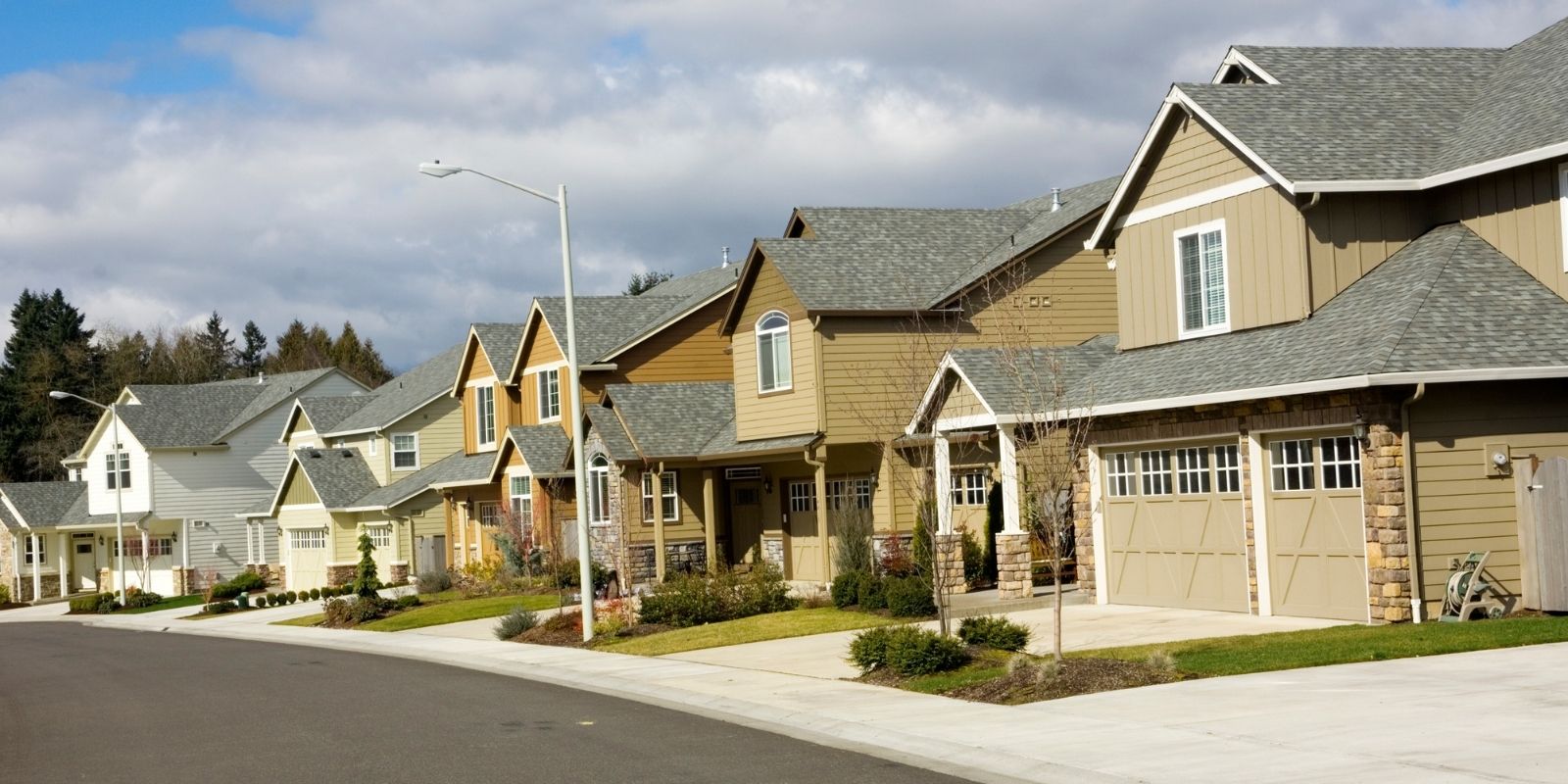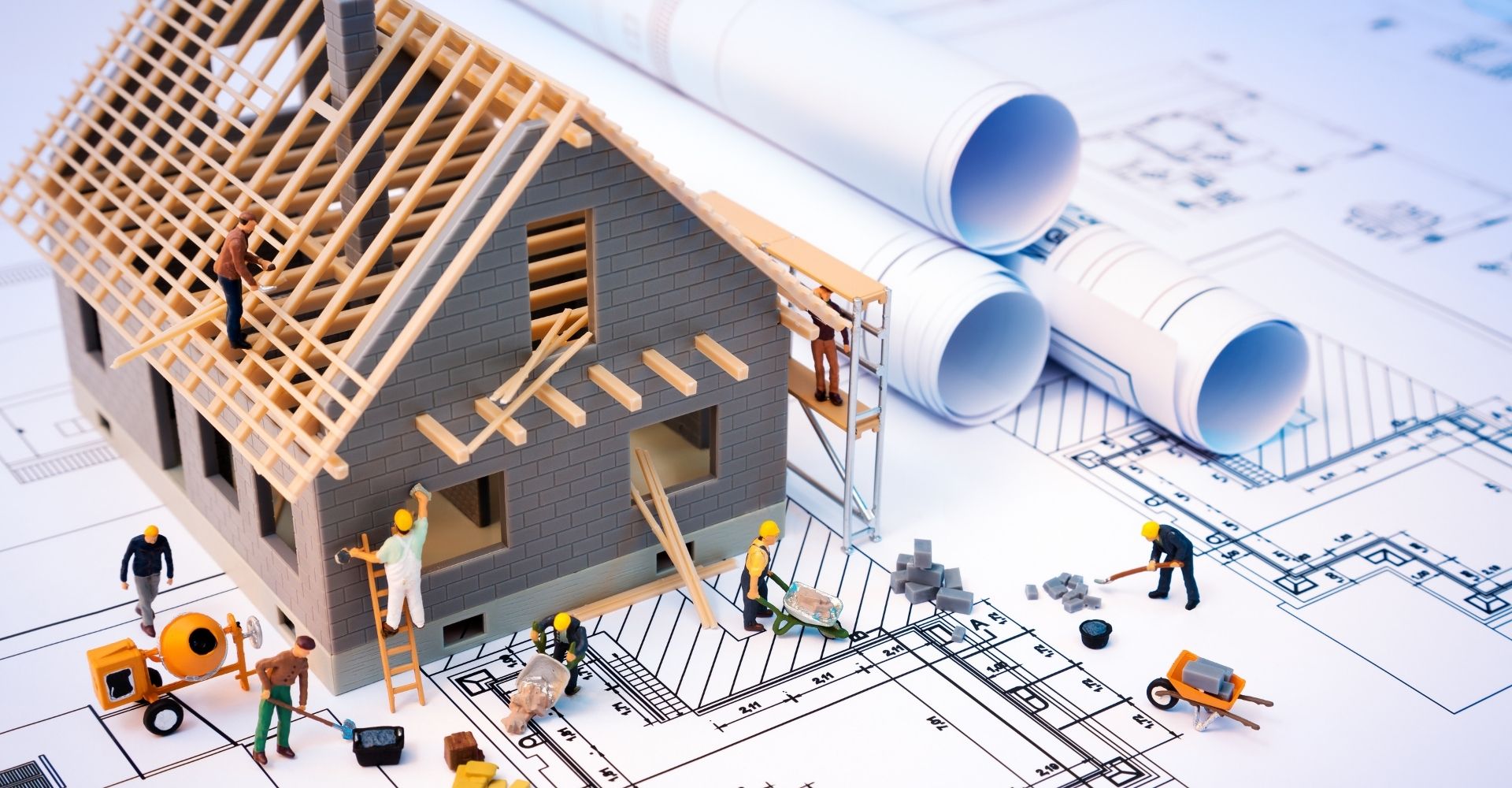The United States has faced a housing shortage for many years now, so homes for sale have been at an all-time low.
As such, you may have switched your search from buying a house to looking at building one.
Buying an existing house versus a newly constructed one are two completely different animals.
So which one is better – buying or building?
In this article, we’ll go over the pros and cons of buying a new construction home versus an existing one.
We’ll compare and contrast the advantages of having everything fresh and perfect in a new build versus the disadvantages of higher pricing and longer timelines.

Pros of Buying A New Construction Home
Buying a new construction home comes with some decided advantages.
Here are a few of the most important ones.
Everything’s New: No Need For Home Improvements
In newly constructed homes, everything from the plumbing to the towel racks is brand new so the unforeseen repairs or improvements necessary with older homes aren’t really a factor.
This provides buyers with peace of mind and a more stable home buying budget forecast.
If you’ve dealt with a fixer-upper home in the past, you know that one home repair project often uncovers the need for two or three more.
Knowing exactly what you’ll spend to acquire a fully operational home is a huge benefit.
Latest Technology
Builders in many areas are incorporating appliances with new “smart” technologies in modern homes.
You can now have a smart lighting solution to control your interior or exterior lights from your phone.
Forget to turn off your smart sprinkler while you’re at work?
Just use the app on your phone to take care of it.
The same goes for locking the front door or closing the garage.
Even if you opt-out of these smart technologies, at the very least, a newly constructed home will be pre-wired with the components necessary to add these features at a later date.
Older homes aren’t optimized for smart appliances, so adding new technologies is a lot more difficult.
You Can Personalize & Customize the House
One of the greatest perks of building a new house is that you can choose whatever layout you like.
Even if you need to pay an engineer or architect to tweak pre-made home designs, this is a lot more cost-effective than remodeling a home that’s already built.
Most builders offer different layouts of homes that have extras (such as a bonus room, finished basement, deck, or additional bedroom).
Work with the builder to add or subtract customizations to fit your needs.
Energy Efficient & Eco-Friendly Features
Thanks to ever-evolving construction technology, today’s homes are more energy-efficient than ever.
Top-rated insulation, tankless hot water heaters, bamboo floors, door seals, and double-paned windows will make a huge impact on your utility bill (and the environment) for years to come.
Older houses were built during a different era, with different materials, technologies, and building techniques.
There’s little comparison between a modern home’s energy efficiency and that of an older home.
The US Department of Energy estimates that you can save up to 25% on your energy bill by adopting energy-efficient measures.
That amounts to an average of over $2,200 per year!
If you install cutting-edge energy technologies like solar panels or geothermal heat, your savings may be even more!
The future energy savings definitely cut into the higher sticker price on new homes.
Few If Any Maintenance Requirements
Your brand new home shouldn’t come to you with any major necessary repairs, which is a huge relief after moving into your home.
No need to worry about hidden problems lurking behind the drywall since everything comes to you in tip-top shape.
Older homes necessitate a lot more repairs and home improvements to start with.
As they continue to age, they’ll require more time, energy, and money to maintain than a new home.
Home Builder Warranties
Like many new items, a newly constructed home will likely have a home builder warranty against defects and problems.
Coverage will vary from builder to builder, but most warranties will cover paint, siding, doors, and drywall for the first year and major systems like plumbing and electrical for longer.
If you’re buying a home with an FHA or VA home mortgage loan, your builder is required to offer a warranty.
Homebuilder warranties do not cover appliances.
Home Builder Warranties vs. Home Warranties
Warranties issued by the home builder are not to be confused with home warranties.
Home warranties are service contracts to repair or replace home elements like appliances or plumbing.
Homebuilder warranties should come as part of the purchase of the home, whereas home warranties are purchased separately.
Proceed with caution if you do purchase a home warranty.
They can be more expensive than simply replacing appliances when they break, and many major systems are covered by homeowners’ insurance already.
Home Builder Financing Incentive
Builders need to sell homes so they can fund their new construction projects, so they bring the financing element in-house.
To lure homebuyers toward new construction, many builders offer compelling incentives in financing.
These include monetary incentives like covering closing costs or a year’s worth of taxes.
You may also see incentives for structural upgrades (granite countertops, a smart security system, or additional square footage).
These extras can be a compelling reason to build a new house rather than buy an existing one.

Cons of Buying A New Construction Home
While a beautiful, shiny, new home looks fantastic, it comes with a few drawbacks.
Below, we’ll outline the biggest disadvantages of buying a new construction home in Texas.
Expensive / High Price
Top-of-the-line construction and materials come at a high price.
In 2021, the average cost of an existing home was around $346,000, while a new build topped $400,000.
Much of this disparity is due to the supply chain problems surrounding the COVID-19 pandemic.
That said, even into 2022, we have continued to see high prices in lumber and other materials.
Builders have no choice but to pass these increased costs on to customers if they want to turn a profit.
For the same square footage, it’s only logical that you’d pay more for a home that is brand new versus a home that is decades old.
Limited Options
If you think that building a home will allow for endless customization, think again.
Most builders like to keep things simple, offering a few options in a limited range of products, models, and styles.
The contractor may not offer the doorknobs, faucets, or flooring you want, so you may have to go and add these in after the fact.
If the construction company is willing to build outside the box and personalize your design, those alterations will likely come with a high price tag.
If you want a high degree of customization for items like fixtures and appliances, a newly constructed home may not be your best option.
Ironically, it may be easier to find a base model of an existing home that you like and pay a contractor to make the changes you want.
Higher Taxes
The property taxes on newly constructed homes will be the highest ones around.
Appraisal districts only get around to assessing the value of homes every three years or more.
That means there’s usually a lag between the current value of the home and the tax assessment for existing homes.
Taxes are always playing catch-up to appreciation.
If yours is one of the first homes in the neighborhood, you can expect your taxes to rise as the subdivision gets built out and amenities and schools get added.
Strict HOA Requirements
Most newly constructed homes will be in the jurisdiction of a homeowners’ association or HOA.
While these organizations are designed to preserve property values, they also cause a lot of headaches.
The internet is replete with horror stories of power-hungry HOA members who are ready to come at you for any little indiscretion.
For instance, if your grass gets a little too long or your Christmas decor stays out a few extra days, you may get a nasty note or a fine.
If you don’t pay your fines, the HOA can put a lien on your house or even foreclose in some cases.
Be sure to read about all the HOA requirements, fees, and restrictions before you build a new home.
Timeline
One of the biggest drawbacks to building a house is that the process takes a lot of time.
Any interruption in the project (labor shortage, bad weather, inability to get the proper materials, or equipment breakdown) can set the timeline back weeks or even months.
If you need to get into the new house because you’re starting a new job or your lease is up, managing that with the ever-changing timeline of a new build can be a challenge.
Less Mature Landscaping
Brand new neighborhoods feature beautiful homes, but landscaping that is mostly dirt and spindly trees that will take years to fully establish.
If you’re looking for tall, leafy trees to shade your yard, attract songbirds, and offer a great place to hang a tire swing, you won’t find this with new construction.
What’s more – you’ll be responsible for putting in or contracting out the landscaping for your new home.
Off-Gassing
Volatile organic compounds (VOCs) are released from the new materials used in building a home.
This release is called off-gassing and can create odd smells and some health hazards.
You know that “new paint” smell?
That’s really small particles of paint being released into the air – and into your lungs.
Inhaling VOCs can lead to many health problems, such as headaches, respiratory problems, hormonal disruptions, and some cancers.
New builds catch the brunt of off-gassing since all the materials are fresh from the factory and still emit the highest amount of particles.
Over time, substances will emit fewer VOCs, so most of the materials in older homes off-gassed a long time ago.
Some builders are trying to incorporate low- or no-VOC building materials, but it will be nearly impossible to avoid VOCs altogether in a brand new home.

Final Thoughts on the Pros & Cons of Buying a New Construction Home in Texas
At first glance, building a new home seems like a gimme – why would anyone pay for a 50-year-old home when they could just build a brand new one with no problems?
Even though you get a high degree of customization and virtually no repairs to make in a new construction home, building a new house isn’t always the wisest choice; it will depend greatly on your circumstances.
You’ll definitely pay a premium for a new build, and while you won’t find any termites lurking in the walls, you may be in for a few surprises if the timeline or taxes don’t go the way you want them to.
Whether you’re looking to buy an existing home or build a new one, it’s vital to work with an experienced realtor to get you the best deal.
Trustworthy agents can act as a liaison between you and the builder and bank, and help you navigate the ins and outs of the home building or home buying process.
To find a trustworthy and reliable real estate agent, look no further than the oldest Real Estate Agency in Fort Worth, TX: Helen Painter Group Realtors.
Helen Painter’s agents have been representing buyers and sellers in Fort Worth since 1958.
Call us today for your Free Consultation from the most trusted real estate agency in Texas!

